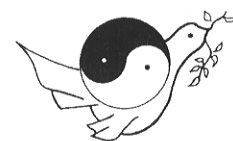|
|
|

------------------EXTENDED DEADLINE-----------------
Confronting US Power after the Vietnam War: Transnational and International Perspectives on Peace Movements, Diplomacy, and the Law, 1975–2012
October 5-6, 2012
Keynote Speaker:
Tariq Ali
PLEASE NOTE: Our original deadline for submissions, 1 May 2012, apparently coincided with the end-of-term for many prospective participants, and we have received many requests for extensions. As a result, we will now accept paper and panel proposals until 15 June 2012. Please follow the same instructions set out below.
The University of Sheffield’s Centre for Peace History, in partnership with the Peace History Society, invite panel and paper proposals for a conference on opposition to United States foreign policy in the years since the end of the Vietnam War. At a time when the United States remains engaged in wars in Iraq and Afghanistan, and with the "unending" war on terror as a backdrop, this conference aims to bring together historians and scholars from other disciplines to discuss the range of political, legal, social, and cultural mobilizations that have challenged US foreign policy since 1975. Although scholars have been writing about the varieties of antiwar activism during the Vietnam War for decades now, opposition to American wars, combat and non-combat interventions, covert operations, and other foreign policies such as sanctions have received, by comparison, and with a few notable exceptions, much less attention. This conference, therefore, aims to shine a light on opposition to as many of these policies as possible.
Historians working from a variety of methodological perspectives are currently crafting new narratives and analyses of interstate relations as well as of transnational forces, nonstate actors—including human rights activists and nongovernmental organizations (NGOs) of all kinds—and their impact on the modern world. We envision a conference where historians of anti-imperialist and anti-war activism grapple directly with the multiple and overlapping dimensions of analysis embodied in transnational history, and also confront transnational and international histories with the political and ethical challenges that peace history and anti-imperialist perspectives create. We invite rigorous dialogue between historians of dissidence against US imperial power and scholars of international relations and transnationalism in general. We are interested in, among other things, the different ways in which the US state and citizen mobilizations have interacted—in patterns including, but not limited to, collision, confrontation, and (perhaps ironic) congruence.
Among the specific historical questions participants in this conference should seek to answer are these: What difference did the end of the Vietnam War, and the end of the Cold War, make in patterns of anti-imperialist and peace activism? Does the quarter-century after 1975 merely form part of a continuous history of US empire and its characteristic opposition (internal and external)? Or did the struggle between US power and its principled opponents take on a new shape, either following the US defeat in Southeast Asia or following the implosion of the Soviet Union?
Finally, as White House and Department of Justice lawyers have in recent years justified policies of preemptive war, extraordinary rendition, indefinite detention, and ‘enhanced interrogation techniques,’ diplomats and lawyers from around the world have challenged those interpretations. We invite papers that explore the history of these diplomatic and legal contests, and their relationship to human rights activists, transnationally and otherwise. In what ways have legal and diplomatic challenges been successful or unsuccessful? To what degree have international institutions such as the United Nations facilitated these challenges? How strong are transnational links between human rights lawyers? What have been the obstacles to influencing and/or changing US policy in wartime?
____________________________________________________
Possible topics could include opposition to particular events and policies:
"Second Cold War" policies, including the arms race
US military intervention in the Middle East, the Caribbean, and the Balkans
Sponsoring combatants in Nicaragua, El Salvador
The "Drug War" in Central and South America
Invasions of Grenada, Panama
Anti-CIA organizing
Anti-Apartheid divestment
The First Iraq War (aka the Persian Gulf War)
UN/US sanctions against Iraq in the 1990s
The War on Terror
The Second Iraq War
The Afghan War
US policies on torture and detention
US economic policy (exploiting markets, foreign labor, etc. – though find another way to say this)
Types of opposition could include:
Grassroots mobilizations
Diplomatic opposition
Legal challenges
Journalistic exposes
Whistleblowing
Espionage
We plan to publish a selection of papers from the conference in a special issue of Peace & Change: A Journal of Peace Research (see http://www.wiley.com/bw/journal.asp?ref=0149-0508 for more information).
The Peace History Society has generously contributed funds that will be used to defray travel costs for some presenters (particularly graduate students and untenured junior faculty). Please indicate your interest in applying for some of this type of funding when you submit your paper or panel proposal.
Please send paper and panel proposals, along with a 1 page CV for each presenter, directly to the conference organizers, Michael S. Foley and Doug Rossinow, at their email addresses below. Paper abstracts should be no more than 500 words; panel proposals will bundle together paper abstracts and include an additional 200 word rationale for the panel. The deadline for submissions is 15 June 2012.
m.foley@sheffield.ac.uk
Doug.Rossinow@metrostate.edu

|

